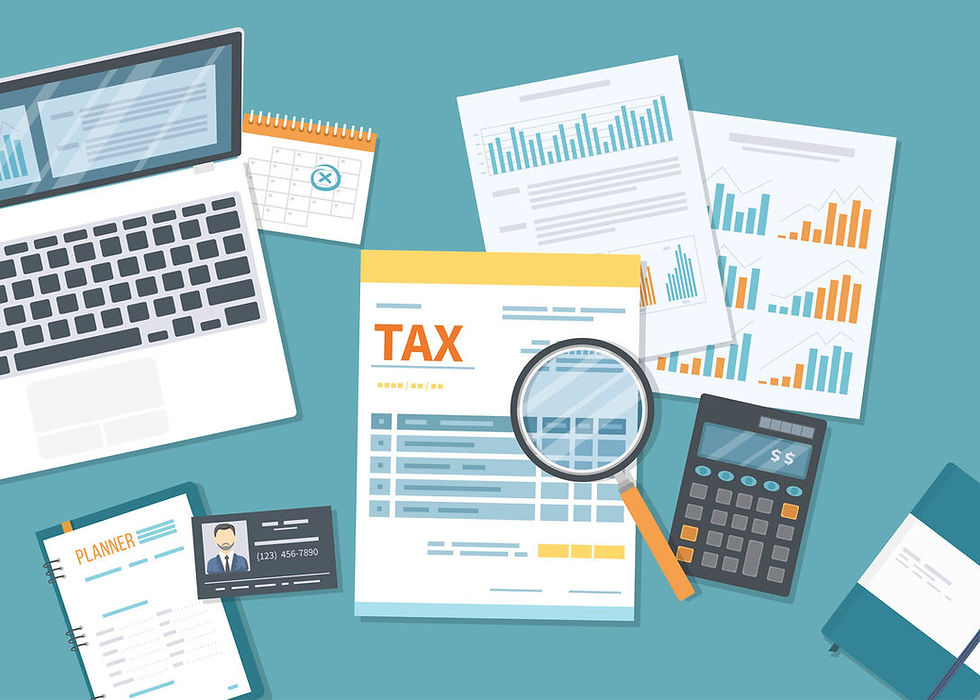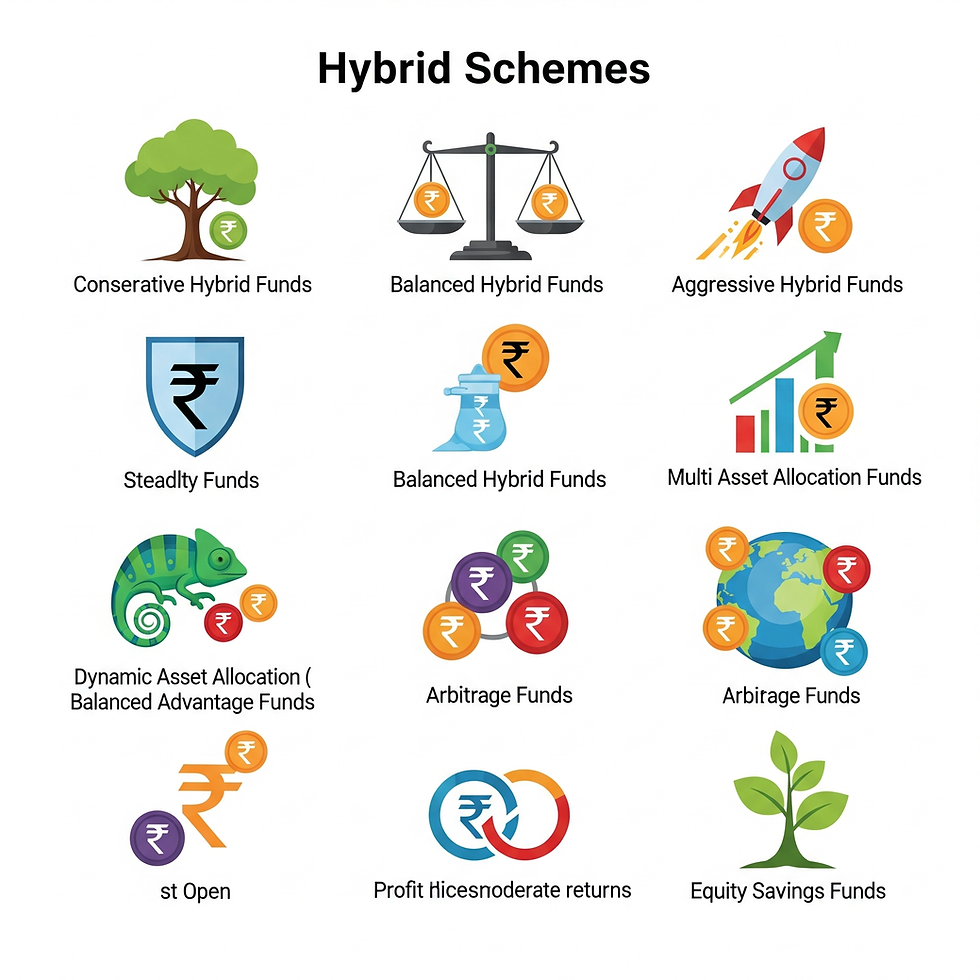Tax Savings Strategies for Salary above Rs. 30 lakh in India
- M Manohar Rao
- May 16, 2025
- 5 min read

Tags: Wealth Management, Investment Lesson, Mutual Funds, Stock market, Budget, Finance, Investing, Personal Finance, Investment
Individuals with an annual income above Rs. 30 lakh in India have the highest tax liability as they come under the highest tax bracket. Now, with two tax regimes—the old and the new —it is important to understand how the tax structure works to save on taxes. The new regime, by default, provides progressive rates with benefits like a standard deduction, while the old regime allows for deductions, including those under sections 80C, 80D, and exemptions for HRA. So, which approach will work for you? Read on to find out. Income Tax Structure in India New Tax Regime (Default Regime)The Union Budget 2025-26 introduced revised income tax slabs under the new regime.
Income Slab (Rs.) | Tax Rate (%) | Details |
Up to Rs. 4,00,000 | NIL | No tax |
Rs. 4,00,001 to Rs. 8,00,000 | 5% | 5% of income exceeding Rs.4,00,000 |
Rs. 8,00,001 to Rs. 12,00,000 | 10% | Tax = Rs.20,000 + 10% of income exceeding Rs.8,00,000 |
Rs. 12,00,001 to Rs. 16,00,000 | 15% | Tax = Rs.60,000 + 15% of income exceeding Rs.12,00,000 |
Rs. 16,00,001 to Rs. 20,00,000 | 20% | Tax = Rs.1,20,000 + 20% of income exceeding Rs.16,00,000 |
Rs. 20,00,001 to Rs. 24,00,000 | 25% | Tax = Rs.2,00,000 + 25% of income exceeding Rs.20,00,000 |
Above Rs.24,00,000 | 30% | Tax = Rs.3,00,000 + 30% of income exceeding Rs.24,00,000 |
Tax rebate under Section 87A and higher standard deduction of Rs.75,000 under section 16 ensures no tax liability if income ≤ Rs.12,75,000.Key Updates
• Standard deduction increased from Rs.50,000 to Rs.75,000 for salaried individuals.
• Section 87A rebate raised to Rs.60,000, making income up to Rs.12.75 lakh tax-free.
Income Slab (Rs.) | Individuals Below 60 Years | Senior Citizens (60–80 Years) | Super Senior Citizens (80+ Years) |
Up to Rs.2,50,000 | NIL | NIL | NIL |
Rs.2,50,001 to Rs.3,00,000 | 5% | NIL | NIL |
Rs.3,00,001 to Rs.5,00,000 | 5% | 5% | NIL |
Rs.5,00,001 to Rs.10,00,000 | 20% | 20% | 20% |
Above Rs.10,00,000 | 30% | 30% | 30% |
Deductions available under Section 80C (Rs.1.5 lakh), Section 80D (health insurance), HRA exemptions under Section 10(13A), etc.
Rebate under Section 87A: No tax liability if total income ≤ Rs.5 lakh.
Health and Education Cess: 4% on total tax liability.
Surcharge Rates (Applicable in Both Regimes)
Total Income (Rs.) | Surcharge Rate (%) |
Above Rs.50 lakh to Rs.1 crore | 10% |
Above Rs.1 crore to Rs.2 crore | 15% |
Above Rs.2 crore to Rs.5 crore | 20% |
Above Rs.5 crore | 37% (Old Regime only; capped at 25% in New Regime) |
For total income above Rs. 2 crores rate of surcharge may vary from the rates mentioned above depending upon whether the total income includes dividend income and income under sections 111A, 112, 112A.
Strategies to Save Tax for Income above Rs. 30 Lakh Given the high tax incidence, it becomes crucial to plan taxes efficiently. Some key strategies include the below.
1. Section 80C Investments
Section 80C of the Income Tax Act provides deductions up to Rs. 1.5 lakh per year for certain investments and expenditures under the old regime, some of which are -
• Public Provident Fund (PPF) – Offers guaranteed returns and accounts can be opened with PPF maturity of 15 years.
• Employee Provident Fund (EPF) – Mandatory contribution for salaried employees towards retirement corpus.
• Equity Linked Savings Scheme (ELSS) – Investments in diversified equity mutual funds with a 3-year lock-in period.
• Life insurance premium – Term or ULIP plans eligible for deduction.
• Home loan principal repayment – Principal component of home loan EMI is eligible for deduction.
2. Long-Term Mutual Fund Investments Investing in equity mutual funds for a holding period exceeding 12 months qualifies for Long-Term Capital Gains (LTCG) tax of just 12.5% on gains above Rs. 1.25 lakh in a financial year.
3. Equity Linked Savings Scheme ELSS is a type of equity mutual fund that offers tax savings under Section 80C, and also offers LTCG tax benefits. Investing in ELSS each year helps maximise Section 80C benefits while also earning market-linked returns. The 3-year lock-in period instils investment discipline.
4. Health Insurance Premiums (Section 80D)Section 80D provides deductions on health insurance premiums paid for self, spouse, children, and parents. The maximum deduction is Rs. 25,000 for normal policies, and Rs. 50,000 for senior citizen policies. Within these limits, deduction of Rs. 5,000 is available for preventive health check-up. Having adequate health insurance coverage provides financial security and helps save tax.
5. HRA Exemption (Section 10(13A))Salaried persons receiving House Rent Allowance (HRA) can claim tax exemption subject to certain conditions. HRA exemption is calculated as the minimum of
• Actual HRA received
• Rent paid less 10% of salary.
• 50% of salary for four metro cities (40% for non-metro cities).
Salary includes dearness allowance, if the terms of employment so provide, but excludes al other allowances and perquisites. Maintaining rent receipts and declaring HRA in tax filings can lower taxable salary.
Exemption under sections 80C, 80 D and 10(13A) mentioned herein is available to assessees who have opted for the old tax regime and assesses who have opted for the new tax regime will not be eligible to get this deduction.
Conclusion The above strategies could help salaried individuals drawing Rs. 30 lakh and above to reduce their tax liability in a legal and ethical way. Combination of these deductions may result in more than Rs. 3 lakh of tax savings per annum for those in the highest tax bracket. However, it is advisable to consult with a tax professional and financial adviser to create the best approach in accordance with your financial goals.
The information stated herein is based on our understanding of the tax laws [Income Tax Act 1961 as amended] and is only for the purpose of providing general information to the investors and is not exhaustive and investors are advised to read and understand the scheme related documents carefully. We shall not be responsible in any manner whatsoever including for any information given herein. The investors should not treat the contents herein as advice relating to legal, taxation, investment or any other matter and are advised to consult its/his or her own tax/legal consultant with respect to the tax implications arising out of his or her or their participation in the Schemes.
Disclaimer:
The information set out above is included for general information purposes only and is not exhaustive and does not constitute legal or tax advice. All complaints regarding Mutual Fund can be directed towards visit www.scores.gov.in (SEBI SCORES portal). Readers are requested to make informed investment decisions and consult Chaitanya Financial Consultants – 9000628943 / mfd.mmr@gmail.com to determine the financial implications with respect to investing in Mutual Funds.
Mutual Fund investments are subject to market risks, read all scheme related documents carefully.
Join WhatsApp group for better and personalised communication regarding investment lessons, advice and help.
Note: Members of our WhatsApp group will enjoy lifetime free investment advice and will not be charged any consultation fee for mutual fund investments.
Support My Mission – Your Small Contribution Matters!
I am passionate about sharing financial knowledge and guiding people toward financial independence. Through my articles, I strive to provide valuable insights that can help you make smarter investment decisions and secure your future.
If my work has added value to your financial journey, I would truly appreciate your support. A small contribution from you—whatever amount you feel is right—will go a long way in motivating me to continue creating high-quality content.
💰 You can support me via:
✔ Paytm / Google Pay / Amazon Pay: 9000628943
✔ PayPal: manomatt@rediffmail.com
Every small payment is not just financial support—it’s an encouragement that fuels my passion for educating and empowering others. Thank you for being a part of this journey! 🙏
Here’s your chance to earn extra money effortlessly. Simply refer someone to invest in any mutual fund scheme, and as soon as they invest, you'll receive ₹100 - ₹200 instantly in your bank account via Paytm or PhonePay. Start referring and start earning today!



Comments